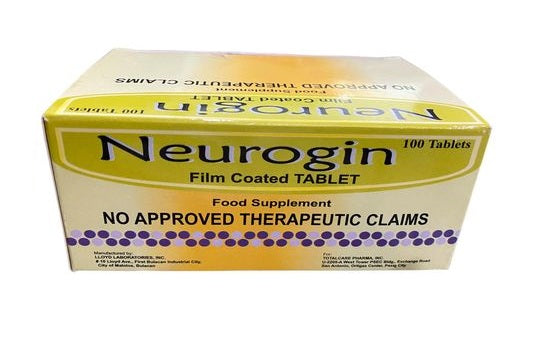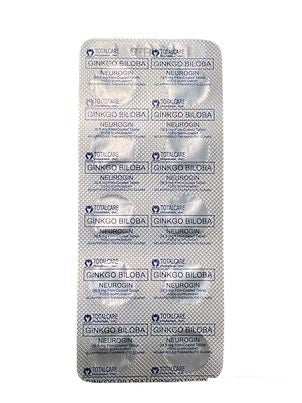Neurogin (Gingco Biloba)
Neurogin (Gingco Biloba)
Couldn't load pickup availability
Action
Ginkgo Biloba is likely to be very effective for enhancing vasodilation via nitric oxide metabolism. Several studies have shown significant effects on ocular blood flow as well. Ginkgo leaf extract is commonly used as a dietary supplement, but there is no scientific evidence that it supports human health or is effective against any disease. Although extracts of Ginkgo biloba leaf are often marketed as cognitive enhancers, there was no evidence for effects on memory or attention in healthy people. Systematic reviews have shown there is no evidence for effectiveness of ginkgo in treating high blood pressure, menopause-related cognitive decline, tinnitus, post-stroke recovery, or altitude sickness. There is weak preliminary evidence for ginkgo affecting dementia and tardive dyskinesia symptoms in people with schizophrenia.
Pregnancy & Lactation
According to a systemic review, the effects of ginkgo on pregnant women may include increased bleeding time, and there is inadequate information about safety during lactation.
Adverse Reaction
Side effects of using ginkgo supplements may include increased risk of bleeding, gastrointestinal discomfort, nausea, vomiting, diarrhea, headaches, dizziness, heart palpitations, and restlessness. Although use of standardized Ginkgo biloba leaf extracts in moderate amounts appears to be safe, excessive use may have undesirable effects, especially in terms of drug interactions. The dosing of anticoagulants, such as warfarin or antiplatelet medication, may be adversely affected by using ginkgo supplements. Ginkgo pollen may produce allergic reactions. Ginkgo biloba leaves and sarcotesta contain ginkgolic acids – which are highly allergenic – long-chain alkylphenols, such as bilobol or adipostatin A (bilobol is a substance related to anacardic acid from cashew nut shells) and urushiols present in poison ivy and other Toxicodendron spp.) Individuals with a history of strong allergic reactions to poison ivy, mangoes, cashews and other alkylphenol-producing plants are more likely to experience an allergic reaction when consuming non-standardized ginkgo-containing preparations.The level of these allergens in standardized pharmaceutical preparations from Ginkgo biloba was restricted to 5 ppm by the Commission E of the former Federal German Health Authority. Overconsumption of seeds from Ginkgo biloba can deplete vitamin B6.
Content
Content
Share



